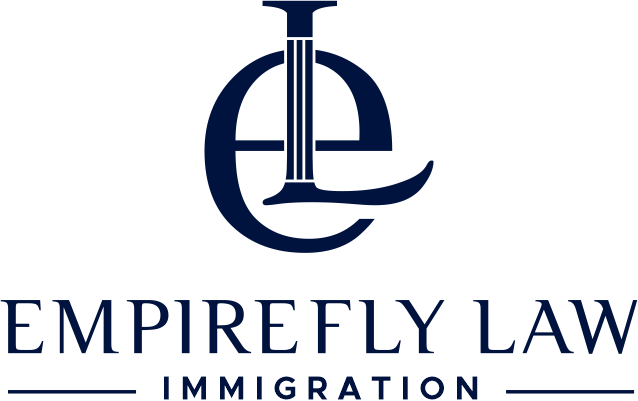New Zealand immigration authorities announced stricter health screening requirements for dependent children of temporary visa holders. This comprehensive analysis breaks down the updated policies, explains the rationale behind them, and provides actionable advice for those considering making New Zealand their new home.
For further information on official policy updates, please visit the New Zealand Immigration website.
Overview of New Zealand Immigration Policy Changes
New Zealand immigration recently tightened its health screening requirements specifically targeting the dependent children of temporary visa holders. Under these new regulations, dependent children accompanying work, student, or military visa holders who have significant cognitive or developmental disabilities requiring extensive support will no longer be eligible for student or visitor visas. This policy update is a part of a broader move by the New Zealand Immigration Department to harmonize health screening criteria across all visa categories, including both temporary and residence-class visas.
By aligning the standards, the government aims to ensure a consistent approach to health screening, thereby reducing discrepancies that have previously existed between different types of visas. The goal is to protect New Zealand’s public resources, particularly its education and healthcare systems, from potential strain. This decision, while controversial for some families, underscores the New Zealand government’s commitment to maintaining a balanced and sustainable immigration system.
Understanding the Rationale: New Zealand Immigration’s Approach to Health Screening
Consistency Across Visa Categories
Historically, New Zealand’s temporary visa categories had more lenient health screening processes compared to those for residence visas. The recent changes in New Zealand immigration policies are designed to eliminate this inconsistency. By ensuring that the same rigorous health standards apply to all visa categories, the government is taking a proactive step in setting clear expectations for all applicants. This uniform approach simplifies the process and minimizes misunderstandings that could arise from differing requirements.
Managing Public Resources and Service Demands
A central reason for these changes is to safeguard New Zealand’s education and healthcare systems. The government is cautious about the potential long-term costs associated with providing extensive care for individuals with significant health or developmental challenges. By tightening the screening requirements, New Zealand immigration authorities aim to prevent scenarios where the country’s public services could be overburdened, ensuring that only those who are less likely to require substantial public support gain entry under temporary visa categories.
Clarity for Applicants
The updated policies serve a dual purpose: they not only streamline internal processes but also inform prospective applicants about the strict criteria from the outset. For African professionals and their families considering a move to New Zealand, understanding these changes early in the application process is crucial. It means that if any family member has health conditions that might fall under these stringent guidelines, alternative immigration routes or additional documentation may be necessary.
For more detailed guidelines, you can refer to the New Zealand Immigration website.
Impact on Families: What African Professionals Need to Know About Dependent Eligibility
Eligibility Challenges for Dependent Children
The revised health screening requirements directly affect dependent children who are part of temporary visa applications. Under the new policy, children with severe cognitive or developmental disabilities that require substantial support are now excluded from being eligible for student or visitor visas. This change is particularly significant for African professionals who may be planning to migrate with their families.
When preparing for New Zealand immigration, it is imperative to assess the health requirements for all dependents. Families with children who have special needs must be aware that the stricter criteria could necessitate exploring alternative visa pathways, such as applying for residence visas where different health screening criteria might apply, or planning for additional financial and medical support evidence in their applications.
Financial and Emotional Considerations
For many African families, the decision to migrate is multifaceted, often involving a careful balance between professional opportunities and family well-being. The exclusion of dependent children with significant disabilities from certain visa categories means that families must now factor in additional challenges—both financial and emotional.
The cost of alternative care arrangements, specialized education, and long-term medical support can be considerably high. Moreover, the emotional stress on families who may feel compelled to choose between migrating for better economic opportunities and ensuring that their dependent children receive the necessary care can be significant. It is crucial to weigh these factors carefully and seek expert advice to navigate these complexities.
New Zealand Immigration Strategy: Balancing Economic Migration with Public Service Sustainability
Ensuring Long-Term Economic Growth
The tightening of health screening requirements is part of a broader immigration strategy aimed at ensuring that the economic benefits of migration do not come at the cost of overwhelming public services. New Zealand immigration policies are designed to attract skilled professionals who can contribute to the country’s economic growth while also ensuring that public resources remain sustainable for all residents.
This approach resonates with many African professionals who view migration as a pathway to better opportunities and professional advancement. By aligning visa requirements with the country’s long-term economic goals, New Zealand is ensuring that the influx of skilled migrants is both beneficial and sustainable. It reflects a commitment to maintaining high standards in public health and education, thereby securing a stable and prosperous future for all.
Sustainable Public Service Management
New Zealand’s decision to standardize health screening requirements underscores a proactive approach to public resource management. With an increasing number of migrants from diverse backgrounds, ensuring that everyone entering the country is prepared to integrate without causing undue strain on public services is paramount. For African professionals, this means that the government is placing a high priority on sustainable immigration practices, which ultimately benefits both migrants and the local community.
Steps for African Professionals Preparing for New Zealand Immigration
Comprehensive Health Documentation
Given the updated policies, one of the most critical steps for African professionals planning to migrate is to ensure that comprehensive health documentation is in order. Here are some key steps to follow:
- Obtain Detailed Medical Reports: Ensure that all family members, especially dependent children, undergo thorough medical examinations by accredited healthcare providers. Detailed reports can help clarify any potential concerns during the visa application process.
- Maintain Updated Vaccination Records: Keep a record of all vaccinations and medical histories. This documentation is essential not only for visa applications but also for your ongoing health needs in New Zealand.
- Consult with Health Professionals: Before initiating your application, discuss your family’s health circumstances with a medical professional who understands the immigration requirements. This can help you prepare any necessary supplementary documentation.
Preparing a Strong Visa Application
A successful New Zealand immigration application hinges on meticulous preparation. Here are some actionable tips:
- Understand the Requirements: Familiarize yourself with the detailed guidelines available on the New Zealand Immigration website. Understanding the precise requirements for temporary and residence visas can help you tailor your application appropriately.
- Gather All Relevant Documentation: In addition to health records, ensure that you have all necessary documents such as employment records, academic credentials, and financial statements. A well-prepared dossier can significantly enhance the strength of your application.
- Seek Expert Advice: Consider consulting an immigration lawyer or a certified immigration consultant who specializes in New Zealand immigration. Expert guidance can help you navigate the complex requirements and identify any potential red flags early in the process. Book a consultation with Empire Fly Law for personalized, step-by-step guidance.
Financial and Logistical Planning
Migrating with a family involves not just meeting health and legal requirements but also careful financial and logistical planning:
- Budget for Additional Costs: Given that alternative visa pathways or additional medical assessments might be necessary, budget for potential extra costs. This includes the expense of additional health checks, specialized medical consultations, or even alternative care arrangements if needed.
- Plan for a Smooth Transition: Research the support systems available in New Zealand for migrants, including healthcare services, community groups, and educational support. Being well-informed about these resources can ease your transition and help you integrate more effectively once you arrive.
Key Resources for New Zealand Immigration
For African professionals preparing for New Zealand immigration, it is essential to rely on trusted sources for the most up-to-date and accurate information. Below are some key resources:
- New Zealand Immigration: The official portal for all immigration-related information, including detailed visa requirements, application procedures, and policy updates.
- Ministry of Health New Zealand: For information on health screening requirements, medical guidelines, and public health policies in New Zealand.
- New Zealand Government: A comprehensive resource for government services and information that can help you understand the broader context of public service management in New Zealand.
Additionally, it is advisable to subscribe to newsletters from these websites or follow their social media channels to stay informed about any future policy changes that could affect your application.
Navigating Family Considerations in the New Zealand Immigration Process
Special Considerations for Families with Special Needs
For African professionals, one of the more challenging aspects of New Zealand immigration can be navigating the requirements for dependent children with special needs. The recent policy changes emphasize the importance of a consistent approach to health screening. Here’s what you need to consider:
- Early Assessment: If your dependent children have special health or developmental needs, consider having an early and thorough assessment by a qualified medical professional. This proactive step can help determine whether your child might face any challenges under the new screening criteria.
- Alternative Visa Options: If the dependent child’s health condition disqualifies them from certain temporary visa categories, explore other visa options such as residency visas where the criteria may be different. Consult with an immigration expert to understand which pathway might best suit your family’s circumstances.
- Legal and Advocacy Support: In some cases, families have successfully sought legal advice or advocacy support to address specific concerns related to health screening requirements. This can provide additional guidance and help navigate any appeals or exceptional cases.
Emotional and Social Support
Migrating to a new country is not solely a logistical challenge—it is also an emotional journey. For families facing these new New Zealand immigration requirements, it is important to seek community support:
- Join Migrant Networks: Engage with local and online communities of African professionals and families in New Zealand. These networks can offer practical advice, share experiences, and provide emotional support.
- Counseling Services: Consider accessing counseling or family support services available in New Zealand. Transitioning to a new country while managing health-related challenges can be stressful, and professional support can ease the process.
Future Implications of New Zealand Immigration Policy
Evolving Immigration Landscape
The recent tightening of health screening requirements in New Zealand immigration is indicative of a broader trend toward more stringent immigration controls worldwide. While these changes may seem challenging, they reflect a growing emphasis on the long-term sustainability of public services and the careful management of migrant populations. As immigration policies continue to evolve globally, prospective migrants should be prepared for additional updates and potential changes in the future.
Strategic Adaptation for African Professionals
For African professionals, adapting to these changes means staying informed and prepared. By understanding the rationale behind these updates and following best practices for documentation and application preparation, you can position yourself as a strong candidate for a successful migration journey. The focus on consistency, clarity, and public resource management in New Zealand immigration policies is a signal that thorough preparation and transparency in your application are more important than ever.
The Role of Expert Guidance
The complexities of modern immigration processes necessitate expert guidance. Working with immigration professionals who understand the nuances of New Zealand immigration law can provide you with a strategic advantage. These experts can help interpret policy changes, tailor your application to meet stringent criteria, and offer insights into emerging trends that might affect your future plans.
Key Takeaways for African Professionals
The recent policy update from New Zealand, which tightens health screening requirements for the dependent children of temporary visa holders, presents both challenges and opportunities for African professionals planning to migrate. Here are the critical takeaways:
- Understand the Policy: The new New Zealand immigration requirements are designed to create consistency across visa categories by aligning health screening standards. This move aims to protect New Zealand’s public services by ensuring that all temporary and resident visa applicants meet the same rigorous criteria.
- Prepare Thoroughly: If you plan to migrate with your family, ensure that all health documentation is comprehensive and up-to-date. Early assessments and detailed medical records can be crucial in navigating these new requirements.
- Consider All Options: For families with dependents who might not meet the new criteria, explore alternative visa pathways and seek expert advice. Understanding the nuances between temporary and residency visa requirements is key to making informed decisions.
- Stay Informed: Regularly check official resources like the New Zealand Immigration website and the Ministry of Health New Zealand for the latest updates. Being proactive will help you adjust to any future changes in policy.
- Leverage Expert Support: Consult with immigration professionals who have experience with New Zealand immigration processes. Their expertise can be invaluable in ensuring that your application is both comprehensive and compliant with the latest standards.
For African professionals, the evolving landscape of New Zealand immigration policy is a reminder of the importance of meticulous preparation, informed decision-making, and continuous engagement with trusted sources of information. By taking these steps, you can confidently navigate the immigration process and secure a promising future in New Zealand.
In summary, the tightening of health screening requirements by New Zealand immigration authorities is a significant development that has far-reaching implications for families, especially for African professionals planning to work and settle in New Zealand. While the new rules present additional challenges, they also underscore the importance of consistency, transparency, and thorough documentation in the immigration process. Embracing these practices not only strengthens your visa application but also aligns with New Zealand’s commitment to sustainable public service management.
For additional support and the most current information, always refer to official sources such as the New Zealand immigration website and related government portals. With careful planning and expert guidance, your dream of building a successful career in New Zealand can become a reality.
This detailed guide on New Zealand immigration policy changes has been crafted to serve as a vital resource for African professionals. By understanding the rationale behind stricter health screening requirements and preparing accordingly, you can navigate the complex immigration landscape with confidence and clarity. Stay informed, be prepared, and embrace the opportunities that await you in New Zealand.
For more detailed, up-to-date information, regularly visit Empire Fly Law.




